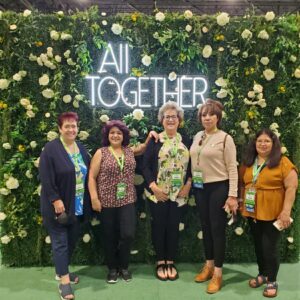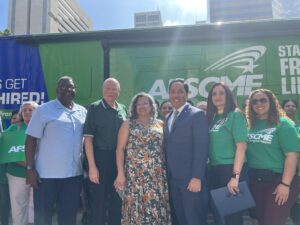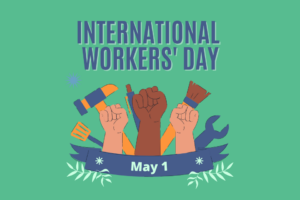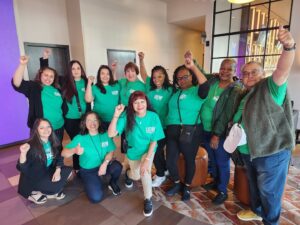
UDW rallies in Washington D.C.
Speaking before a crowd at the Care Can’t Wait rally in Washington, DC, home care provider Sabrina Bishop from San


Speaking before a crowd at the Care Can’t Wait rally in Washington, DC, home care provider Sabrina Bishop from San

Celebrating nearly two decades of service to UDW members and the Californians in our care Editha Adams, who served our

UDW members are calling for an immediate and permanent ceasefire in Israel-Palestine. We condemn the United States’ continued support of

Today, UDW is excited to launch a new statewide storytelling campaign—along with a whole new look and feel—inspired by the

SACRAMENTO – UDW/AFSCME Local 3930, a union representing over 170,000 home care workers and family child care providers in California,

Statement from Doug Moore, Executive Director, United Domestic Workers (UDW/AFSCME Local 3930): Yesterday, the Monica Montgomery Steppe campaign celebrated a

The legacy and work of our union isn’t just carried by our founders or our leaders, but by our members

SAN DIEGO – UDW Executive Director Doug Moore released the following statement on the appointment of Laphonza Butler to U.S.

This Labor Day, UDW members from Riverside and Orange Counties rallied alongside union siblings from across Southern California to demand safe staffing at Kaiser Permanente hospitals.

UDW members and leaders joined our parent union, AFSCME, for a stop in San Diego yesterday on their nationwide “Staff the Front Lines” tour.

Families of four with incomes of up to $96,300 are eligible for subsidized child care, under new state income limits,

SACRAMENTO – UDW/AFSCME Local 3930, a union representing over 171,000 home care workers and family child care providers in California,

After months of negotiations and a number of vigils, marches and rallies to spur public support, California’s unionized child care providers have reached a new labor deal with the state.

BY JEANNE KUANG Gabriela Guerrero’s children are all grown and have moved out, but the former stay-at-home mom never stopped raising

BY JENNY GOLD Behind the white iron gate of her Boyle Heights home, Adriana Lorenzo’s concrete courtyard is filled with half

By Marie Coronel SAN DIEGO (KGTV) — As we head into the summer months with schools out, many parents sifting

SACRAMENTO – The United Domestic Workers of America (UDW/AFSCME 3930), a union of 165,000 California home care workers and family

Author: Jesse Pagan Members of the Child Care Providers United (CCPU) union say the childcare system in California is close to

By Tania Thorne / North County ReporterContributors: Charlotte Radulovich / Video Journalist What would happen if there was no child care? It could cause

May 1 is celebrated around the world as International Workers’ Day. The U.S. chose to celebrate Labor Day in September

This week UDW leaders and members joined hundreds of care workers from across the country in D.C. at the first-ever